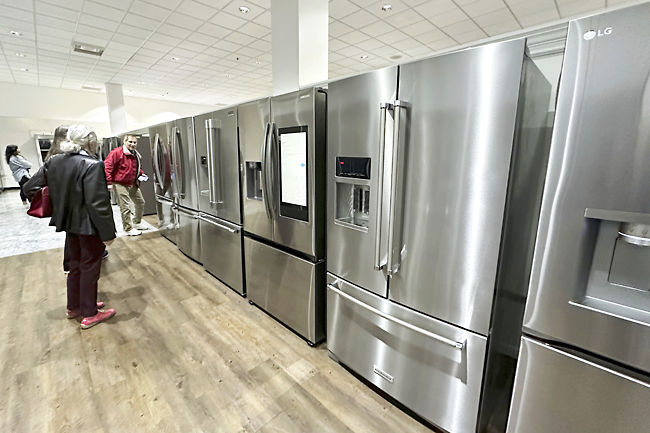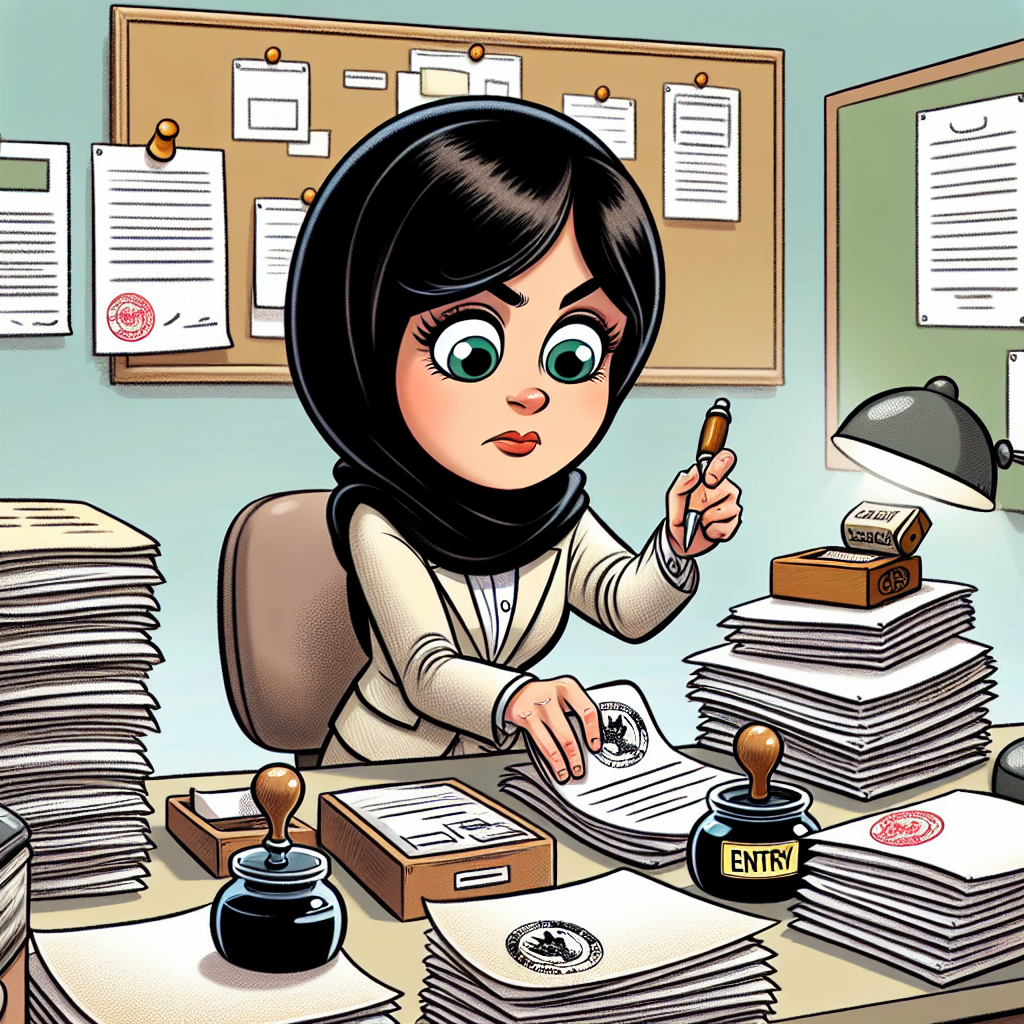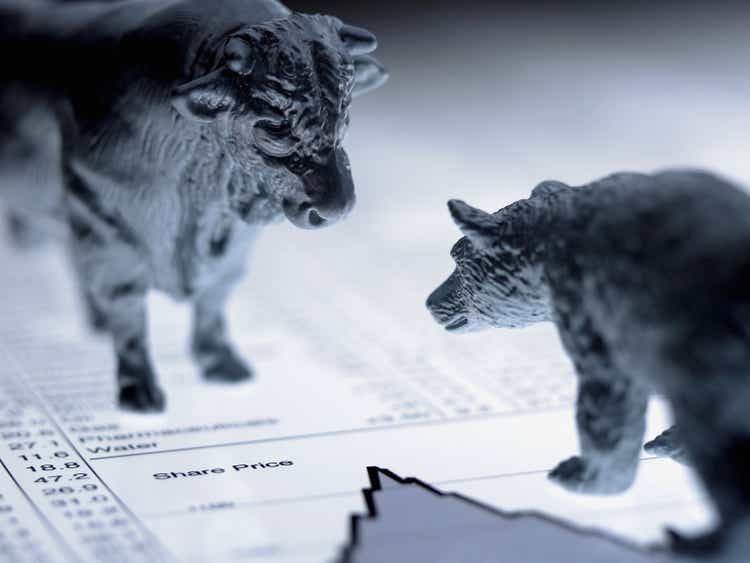WASHINGTON (AP) – United States (US) consumer sentiment plunged in April, the fourth consecutive month of declines, in a seemingly sharp rebuke of President Donald Trump’s trade wars that have fuelled anxiety over possible job losses and rising inflation. The preliminary reading of the University of Michigan’s closely watched consumer sentiment index fell 11 per cent on a monthly basis to 50.8, the lowest since the depths of the COVID-19 pandemic.
Over the past year, sentiment has tumbled 34 per cent. The decline was “pervasive and unanimous across age, income, education, geographic region and political affiliation,” said director of the survey Joanne Hsu. The share of respondents expecting unemployment to rise in the coming months increased for the fifth straight month and is now the highest since 2009 during the Great Recession.

While consumer sentiment is not always a reliable indicator of the overall economy, it has at times reflected shifting vibes in how the public feels about presidential leadership. Sentiment among Republicans has dropped six per cent over the past month as Trump teased, then rolled out a series of aggressive tariffs, only to institute a 90-day pause of some import taxes. “Interestingly, President Trump appears to be getting much of the blame for much of the deterioration in sentiment with 67 per cent of respondents saying the government is doing a ‘poor job’ on fighting inflation and unemployment,” said chief international economist at ING James Knightley.
“Only 18 per cent say it is doing a ‘good job.'” Asked at Friday’s news briefing about the falling consumer sentiment, White House press secretary Karoline Leavitt said that the public should trust in Trump as he executes his tariffs plan. “As he said, this is going to be a period of transition,” she said.
“He wants consumers to trust in him, and they should trust in him.” The result of the trade war drama so far is a baseline tariff on most countries of 10 per cent, with imports from China getting taxed at a combined 145 per cent. Goods from Canada and Mexico face tariffs of up to 25 per cent, while imported autos, steel and aluminium are taxed at that same rate.
China retaliated with a 125 per cent tariff on US goods. The Trump administration has suggested that it cut new trade agreements with more than 75 nations over a span of 90 days. Eroding American confidence has also surfaced in the financial markets.
Investors are selling off US debt. The interest rate on the 10-year US Treasury note was at 4.48 per cent, up from roughly four per cent at the start of the week.
That suggests more economic instability ahead. On Friday, the dollar slumped to a three-year low against the euro. CEO of the investment firm BlackRock Larry Fink told CNBC the US economy is on the cusp of a downturn, if not already there.
“I think we’re very close, if not in, a recession now,” Fink said. The Michigan sentiment survey found that people now expect long-term inflation to reach 4.4 per cent, up from 4.
1 per cent last month, a move that may be of particular concern for the US Federal Reserve (Fed). The Fed paid close attention to inflation expectations, because they can become self-fulfilling. If people expect prices to rise, they often take steps that can push up prices, such as accelerating purchases or seeking higher wages.
It’s a sign that most of the public views as a blip data this week showing that consumer inflation declined in March to an annual rate of 2.4 per cent. Most economists believed that, given the intensifying trade wars, inflation is likely to be reignited.
Americans’ inflation expectations over the next five years are now at the highest since 1991, according to Capital Economics, a forecasting firm. “Households appear to have come to the same conclusion as markets: the tariffs will do lasting damage to the US economy,” assistant economist at Capital Economics Harry Chambers said in an email. Consumer sentiment remained sharply divided by party, with the index for Democrats at 34.
1 and Republicans at 81.9. Yet both recorded steep drops in April.
Sentiment among independents plunged to 46.8 from 55.7, and is sharply below its post-election peak of 70.
2. The April reading among independents is now lower than it was at any point during Joe Biden’s presidency. Those inflation expectations have now jumped for several months.
At a news conference last month, Fed Chair Jerome Powell said the University of Michigan’s inflation expectations measure was an “outlier.” Market-based measures of inflation expectations, based on inflation-adjusted Treasury securities, have remained low, near the Fed’s two per cent target. Falling sentiment suggested that Americans will cut back on spending, though in recent years consumers have at times kept spending despite the gloom.
Yet the fact that worries about employment are rising could lead to more caution by consumers. “This lack of labour market confidence lies in sharp contrast to the past several years, when robust spending was supported primarily by strong labour markets and incomes,” Hsu said. What made this particular moment unique is that the back-and-forth over tariffs has created a degree of paralysis with hiring freezes and uncertainty.
“For everybody watching this process unfold, it’s causing a lot of anxiety because they don’t know how to make the right decisions when things change hourly,” said senior vice president of government relations at the National Retail Federation David French..
















